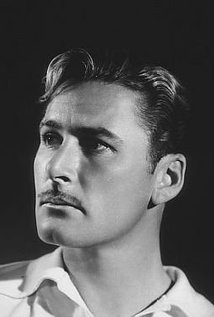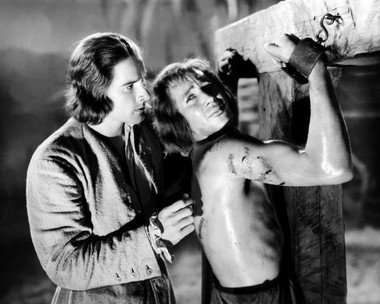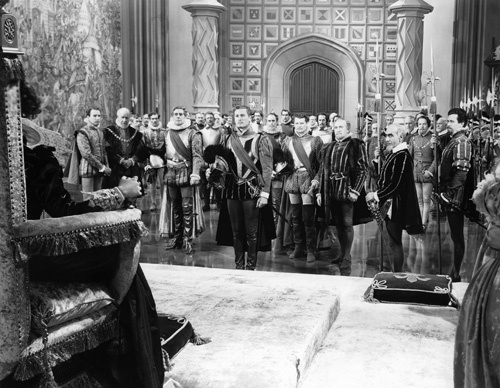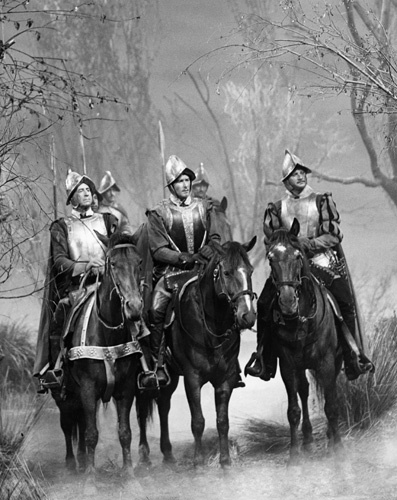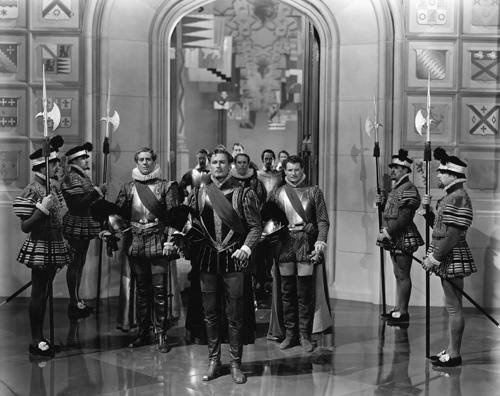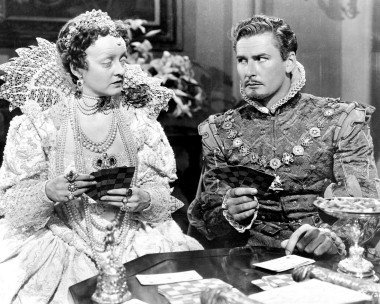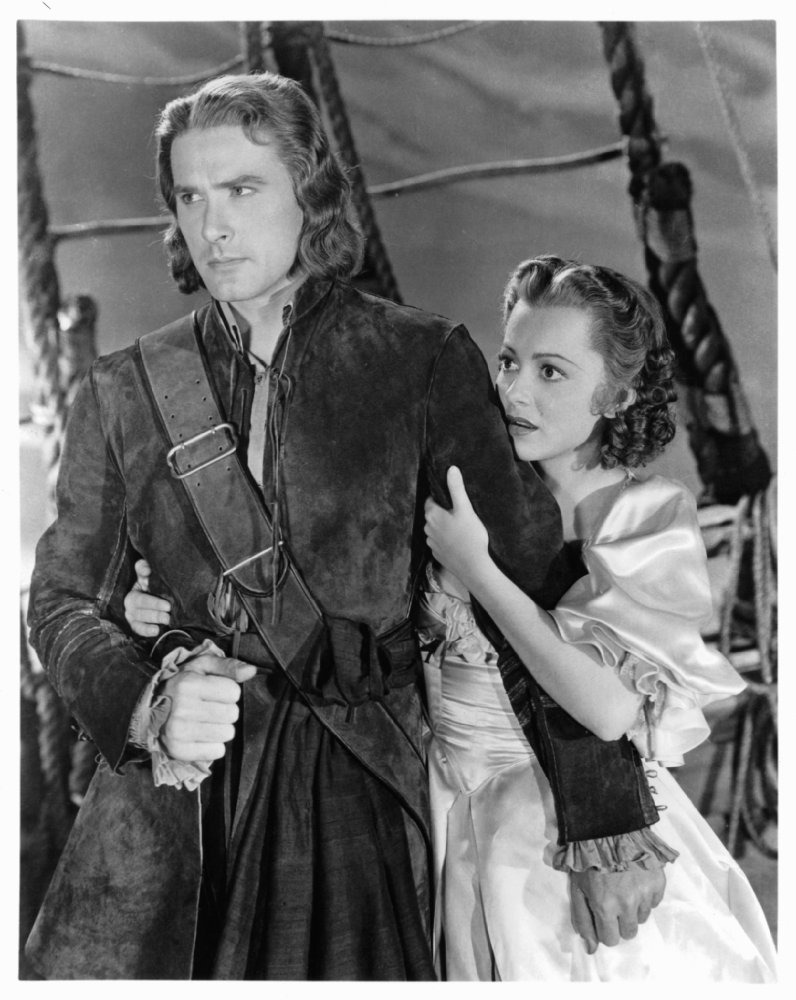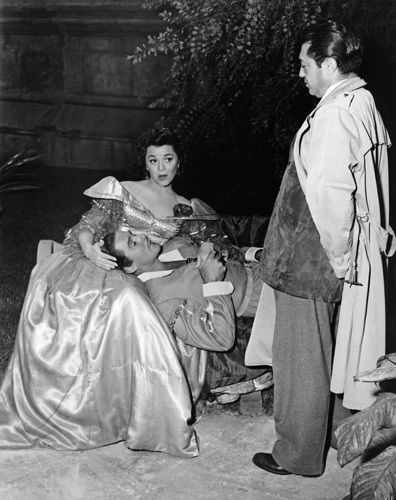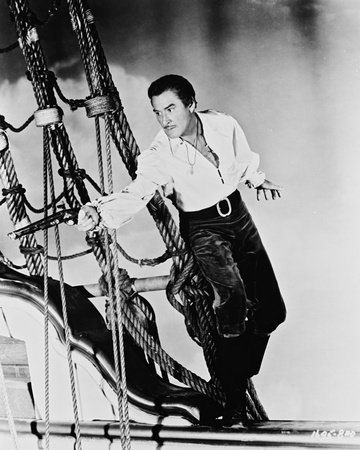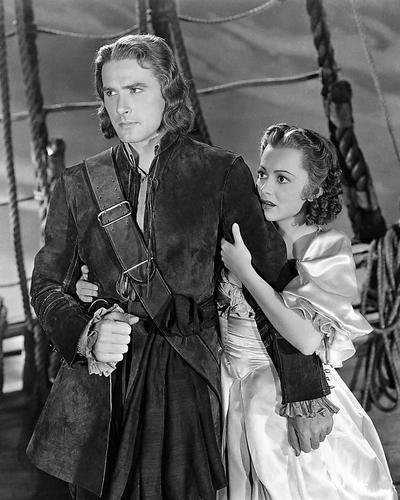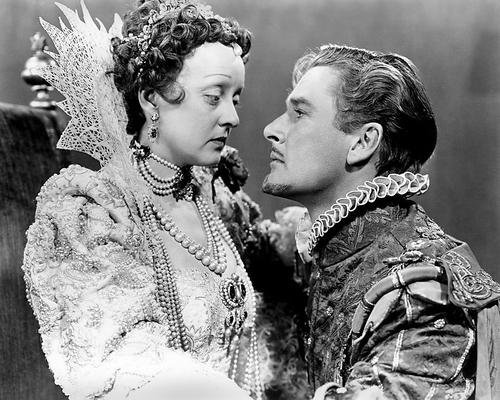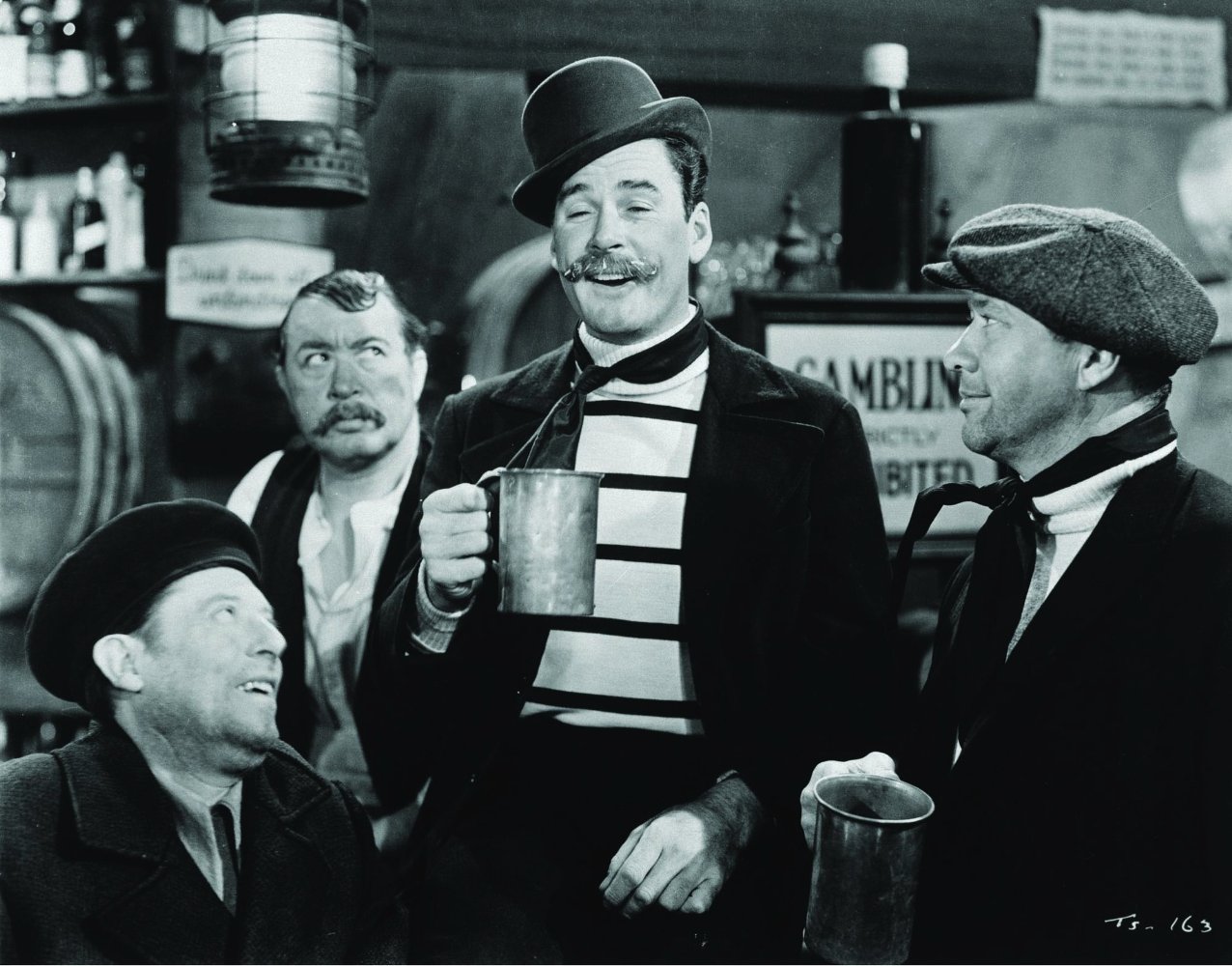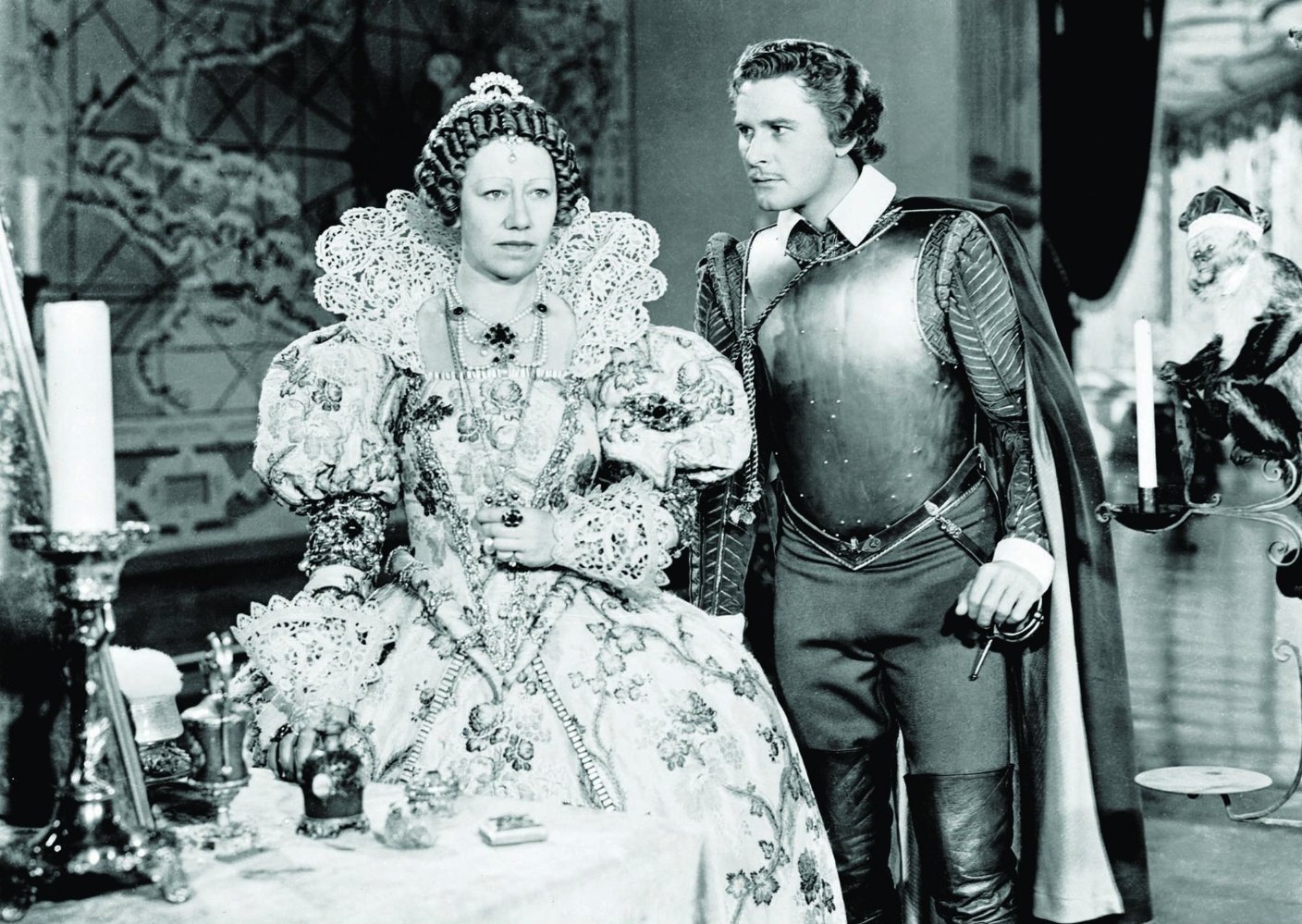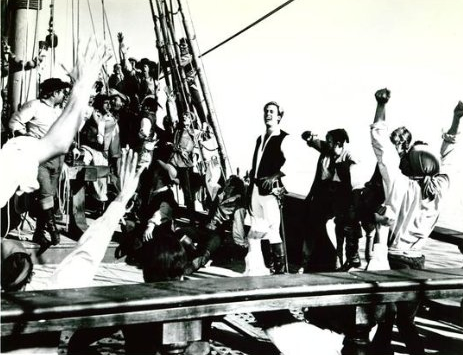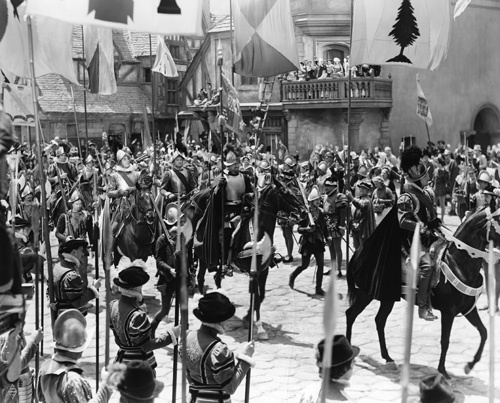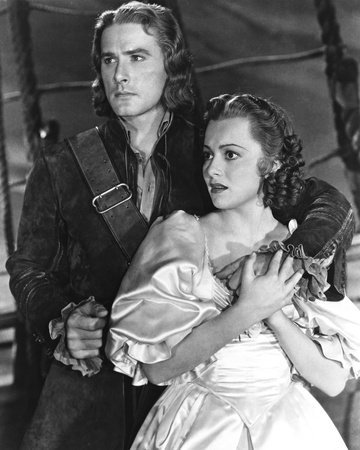Errol Flynn was born to parents Theodore Flynn, a respected biologist, and Marrelle Young, an adventurous young woman. Young Flynn was a rambunctious child who could be counted on to find trouble. Errol managed to have himself thrown out of every school he was enrolled in. In his late teens he set out to find gold, but instead found a series of sho...
Show more »
Errol Flynn was born to parents Theodore Flynn, a respected biologist, and Marrelle Young, an adventurous young woman. Young Flynn was a rambunctious child who could be counted on to find trouble. Errol managed to have himself thrown out of every school he was enrolled in. In his late teens he set out to find gold, but instead found a series of short lived odd jobs. Information is sketchy, but the positions of police constable, sanitation engineer, treasure hunter, sheep castrator, shipmaster for hire, fisherman, and soldier seem to be among his more reputable career choices. Staying one jump ahead of the law and jealous husbands forced Flynn to England. He took up acting, a pastime he had previously stumbled into when asked to play (ironically) Fletcher Christian in a film called In the Wake of the Bounty (1933). Flynn's natural athletic talent and good looks attracted the attention of Warner Brothers and soon he was off to America. His luck held when he replaced Robert Donat in the title role of Captain Blood (1935). He quickly rocketed to stardom as the undisputed king of swashbuckler films, a title inherited from Douglas Fairbanks, but which remains his to this day. Onscreen, he was the freedom loving rebel, a man of action who fought against injustice and won the hearts of damsels in the process. His off-screen passions; drinking, fighting, boating and sex, made his film escapades seem pale. His love life brought him considerable fame, three statutory rape trials, and a lasting memorial in the expression "In like Flynn". Serious roles eluded him, and as his lifestyle eroded his youthful good looks, his career declined. Troubles with lawsuits and the IRS plagued him at this time, eroding what little money he had saved. A few good roles did come his way late in life, however, usually aging alcoholics, almost mirror images of Flynn. He was making a name as a serious actor before his death.Errol Flynn wrote an autobiography entitled "My Wicked, Wicked Ways". In the autobiography Flynn mentions his pilot, Barry Mahon throughout the book. Barry Mahon was a decorated fighter pilot who shot down more enemy aircraft than any other pilot in history. He was also the only man to escape from the Germans twice in World War II and the Hollywood movie, THE GREAT ESCAPE starring Steve McQueen, was based on Barry's life and this true-life adventure. It was thus only fitting that Errol Flynn, constantly fleeing from IRS agents, pissed off women and and law suits would hire Barry Mahon to be his personal pilot. But what is stranger than this is that. in later years. Barry Mahon would become Errol Flynn's personal manager and CEO of his production company, giving up flying to produce motion pictures. Accordingly, after Errol passed away, Barry Mahon and his daughter, producer Doris Keating, were able to purchase the literary rights to Errol Flynn's autobiography ("My Wicked Wicked Ways"). Based upon this and the track record established by Doris Keating with 4 prior TV movies, CBS granted a license agreement to Doris Keating Productions and, working with Columbia Pictures TV, Keating produced an extremely classy and well-cast Movie-of-the-Week which aired on CBS to rave reviews. This movie, a must-see bio-picture, does great justice to legend of Errol Flynn, and although it did not "white wash" the trouble Flynn got into in later years, it accurately reported that he was innocent of all charges brought against him. Unfortunately, these false charges contributed to the ruin of Errol Flynn's career as movie studios and the public are often fickle or unforgiving.
Show less «

